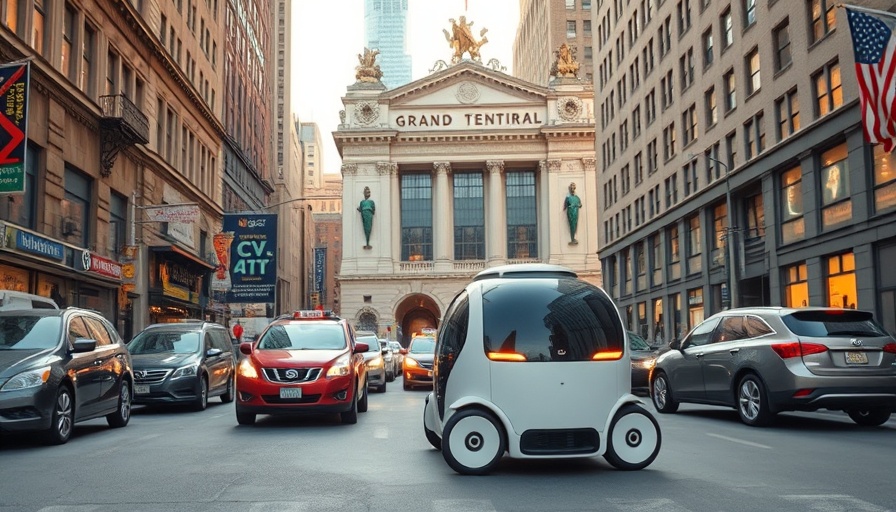
Uber Partners with Baidu: The Rise of Robotaxis in Asia
In a significant move that expands the realm of self-driving cars, Uber has announced a multi-year strategic partnership with China's tech giant Baidu. This collaboration aims to bring thousands of Baidu's Apollo Go autonomous vehicles (AVs) to Uber's platform, focusing on markets outside the U.S. and mainland China, with initial deployments planned for Asia and the Middle East later this year.
Shifting Gears: Why This Partnership Matters
Uber's latest deal with Baidu is not just a simple expansion; it's a crucial step in adapting to the evolving landscape of mobility services. As competition in ride-hailing sharpens, particularly from other autonomous vehicle companies, Uber is proactively integrating robotaxis into its service offerings. Recent partnerships with other companies, such as Waymo and Volkswagen, underline this trend, illustrating Uber's strategy to stay relevant and competitive in the fast-shifting automotive landscape.
The Future of Transportation: The Robotaxi Revolution
The concept of robotaxis has fascinated the automotive industry and consumers alike. With Baidu's Apollo Go vehicles in the mix, Uber's ambition could revolutionize our transportation systems. The initial phase will see riders potentially offered the opportunity to use a fully driverless Baidu AV, although it will not be the default option in the app. This approach echoes existing models where options are progressively introduced, allowing users to become accustomed to this new technology.
Understanding the Current Landscape of AVs
While the prospects of robotaxis are alluring, it’s essential to note that these partnerships and technology implementations remain in the early stages. Consumer readiness could also play a significant role in adoption rates. Historical attempts at introducing autonomous vehicles have met with skepticism due to safety concerns and unclear regulatory frameworks. Nonetheless, public interest in automotive innovations continues to grow, fueled by advancements in EV powertrains and overall automotive technology.
Looking Ahead: Implications for Shoppers and Commuters
As we stand at the brink of this transformation in automotive technology, consumers should keep an eye on how these developments affect everyday use of transportation services. The partnership between Uber and Baidu raises questions about cost savings, efficiency, and potential changes in the way we view personal mobility. For example, could this mean lower fares for riders, or will it lead to a shift in vehicle ownership perceptions?
To fully grasp the implications of these innovations, automotive consumers should familiarize themselves with evolving trends in the market. Understanding how these partnerships can offer more options may empower riders to make informed decisions about their travel needs.
In conclusion, as Uber accelerates its partnerships with companies like Baidu, the future of automotive transportation looks set to be both exciting and transformative. Staying informed about these changes will allow consumers to navigate their transportation choices more effectively.
Stay tuned as the robotaxi landscape develops, and don't miss out on exploring how these innovations may impact your daily commute and travel experiences.
 Add Row
Add Row  Add
Add 




Write A Comment